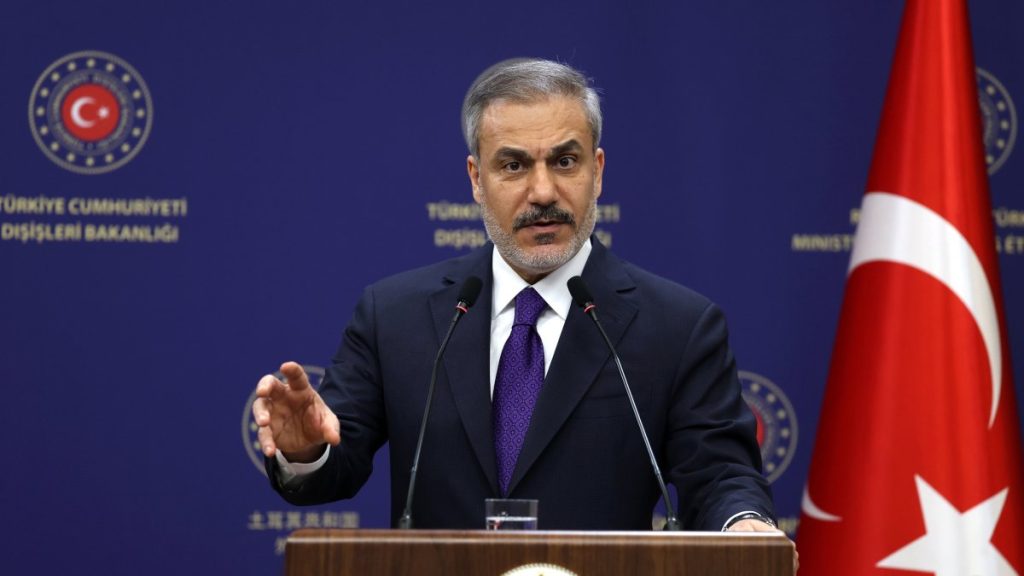Foreign Minister Hakan Fidan discussed a range of pressing topics, from an assassination attempt to Türkiye’s ongoing battle against terrorism and its diplomatic efforts in the Middle East.
In an exclusive interview on 24 TV, Fidan revealed that he was heavily poisoned about 4-5 years ago.
“I was given heavy arsenic and mercury. It happened somewhere, and it showed up in tests after 4-5 years,” he said.
He did not specify the perpetrators but emphasized that both physical and character assassinations had been constant threats throughout his career.
He noted that these attacks were part of a broader, ongoing struggle, with his enemies both inside and outside Türkiye.
Fidan, who served as head of Türkiye’s National Intelligence Organization (MİT) before becoming Foreign Minister, recounted how terrorist and criminal groups had targeted him and his family with disinformation and propaganda.
“These attacks are nothing new,” he said, “but what is concerning is when Türkiye’s opposition parties and criminal organizations use this misinformation for political gain. That marks a new low.”
He also emphasized that his determination to serve the country remained unshaken despite these attacks.
“We’re here to serve this nation, no matter the challenges—be it a character assassination or a physical one,” he said.
His resilience mirrors Türkiye’s broader counterterrorism strategy, which he described as having undergone significant transformation over the years.
According to Fidan, Türkiye’s counterterrorism success is rooted in national ideologies, technologies, and decision-making processes, cultivated under President Recep Tayyip Erdoğan’s leadership.
Regarding the PKK, Fidan mentioned the group’s ongoing preparations for a congress, signaling potential shifts within the organization.
He also discussed the importance of ending terrorism and illegal activities in the region, noting that a long-term solution would require the complete dissolution of armed groups.
On the international front, Fidan spoke about Türkiye’s constructive role in the Middle East, particularly in Syria and Iraq.
He stressed Türkiye’s commitment to the territorial integrity of Syria and emphasized that Türkiye would not stand by while instability in the region threatened national security.
Fidan also highlighted Türkiye’s approach to dealing with Israel and Palestine, expressing concerns over the humanitarian situation in Gaza and reiterating Türkiye’s stance on supporting Palestinian rights.
In a broader geopolitical context, Fidan discussed the evolving dynamics of U.S.-Türkiye relations, pointing to areas of both cooperation and disagreement.
He particularly focused on the need for stronger collaboration in technology and trade.
He also touched on Europe’s security architecture and the continent’s growing independence from U.S. defense systems.
Through it all, Fidan’s message was clear: Türkiye’s foreign policy is rooted in strategic resilience, national unity, and an unwavering commitment to the country’s sovereignty and global influence.


